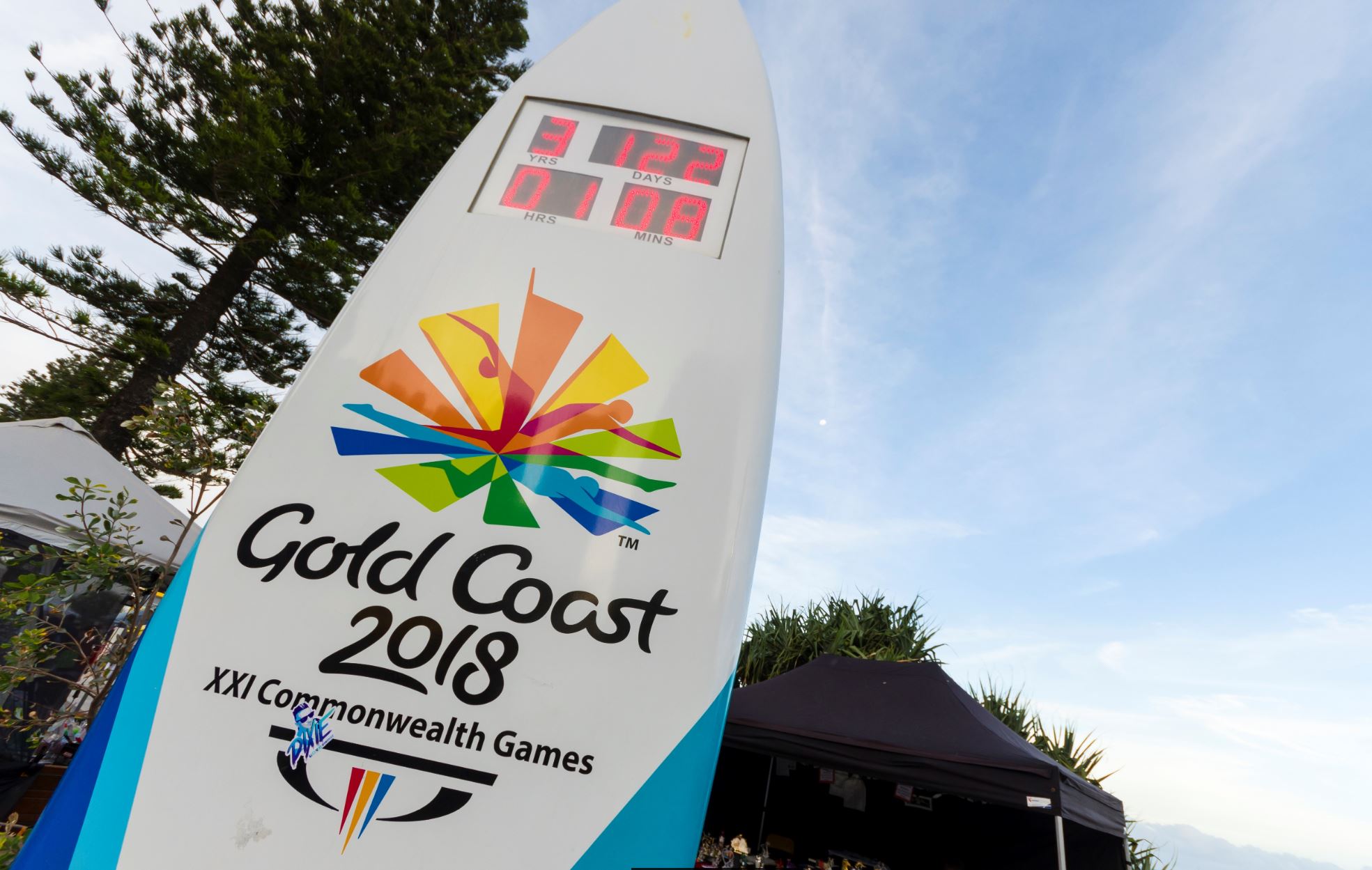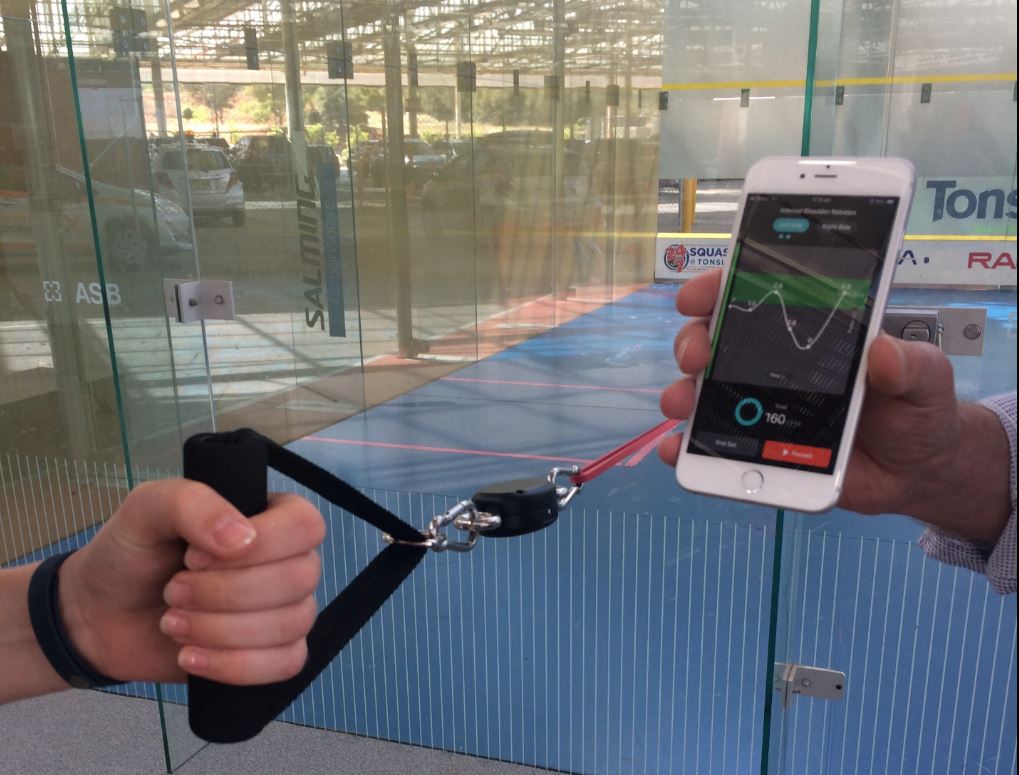
South Australian sport-tech startup Prohab will launch its new rehabilitation device at the Gold Coast 2018 Commonwealth Games.
The Prohab rehab device connects to standard resistance bands or cables, widely used in physiotherapy, to precisely measure the force applied to the band.
The data is then captured and sent to an app where it can be visualised instantaneously as well as tracked over time. This helps the patient and their medical professionals to make more accurate, tailored treatment programs for sporting injuries and fitness training.
The device can be used for training athletes and sportspeople as well as to motivate and monitor patients recovering from injury or surgery.
Prohab CEO Mr Lyndon Huf says the device is a great way for professional sports athletes to keep track of their rehabilitation in real time.
“Our Prohab device easily allows athletes and their coaching staff to monitor improvements in strength through testing or rehabilitation training,” Mr Huf says.
“Coaches can prescribe a set training program for the athletes and because it fits directly onto existing resistance bands or cables, it is a really easy way to monitor the impact of the training program.”
Mr Huf has approached the AFL and other sporting codes, including the Major League Baseball League in the US, and now has the opportunity to pitch the device at the Gold Coast 2018 Commonwealth Games, thanks to the national HYPE Spin Accelerator program.
The Gold Coast 2018 Commonwealth Games (4-15 April) will welcome more than 6,600 athletes and team officials from 71 Commonwealth nations and territories to the Gold Coast and event cities Brisbane, Cairns and Townsville.
More than $4.5 billion is invested in sporting technology (‘sportstech’) globally, on developments such as smart stadiums, wearable devices and other ways to support the health and safety of players and fans.
The HYPE Spin Lab, first launched in Spain at the home ground of the world-leading Barcelona Football Club, opened in Australia in partnership with the University of Queensland last year ahead of this year’s Commonwealth Games.
Sportstech innovation is a prominent area of research in Australia, with startups around the country working on a range of ways to change the way athletes are trained, the way fans interact, and on creating opportunities for never-before-seen products and business models.
 Mr Huf says “a lot of hard work, determination and most of all, collaboration” has been behind Prohab’s development, not least with help from Flinders University’s Medical Device Research Institute.
Mr Huf says “a lot of hard work, determination and most of all, collaboration” has been behind Prohab’s development, not least with help from Flinders University’s Medical Device Research Institute.
Prohab is currently located at Flinders University’s New Venture Institute (NVI) Tonsley eNVIsion incubator and working with the Tonsley Manufacturing Innovation Hub, on the automated assembly of the device.
“We recognised very early in the piece the benefits of collaborating and approached Flinders University’s Medical Device Partnering Program (MDPP) to design and build a functional prototype which would be suitable for initial end-user trials,” Mr Huf says.
Through this process, the MDPP pulled together 10 experts from physiotherapy, rehabilitation engineering, product design, commercialisation and manufacturing, to discuss the product and inform the MDPP research and development project.
“These connections are so valuable and ended up having a profound impact on the future direction of the Prohab device’ said Mr Huf.
It was at this MDPP workshop where Mr Huf was introduced to Flinders University Associate Professor in Product Design Sandy Walker, also based at Flinders at Tonsley.
Associate Professor Walker saw merit in the product and came up with some early conceptual user centred design proposals to present to Prohab and, from there, became an integral member of the Prohab design team.
“I have been intimately involved in the development of the final product, assisting Prohab with design for manufacture, usability, materials and advanced manufacturing,” Associate Professor Walker says.
“It’s a really exciting product because it is so simple, yet has a wide range of applications and users,” says Associate Professor Walker.
The team secured a further $78,000 through UniSA’s Future Industries Fund in 2017, to develop a robust and accurate sensor and attachment mechanism for the product.
Mr Huf says Associate Professor Walker’s knowledge in design thinking, additive manufacture, 3D visualisation and innovative use of advanced materials and processes has been invaluable.

